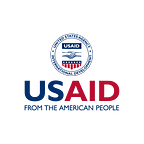The Real-Life Heroes Behind USAID’s COVID-19 Humanitarian Response
We recognize the real-life heroes who are overcoming Herculean challenges to save lives and help those in need, all around the world.
Never has the generosity, courage, and sacrifice of aid workers been more evident — or more needed — than it is today. On top of the millions of people who are in need of humanitarian aid due to conflicts or natural disasters, the world continues to fight the COVID-19 pandemic.
The United States is leading the global response efforts to this unprecedented outbreak, providing more than $1.6 billion in health, humanitarian, economic, and development assistance in more than 120 countries. Of this, $558 million is for USAID’s humanitarian assistance programs, carried out by hundreds of real-life heroes working for our partners on the ground.
We wanted to introduce you to a few of them.
The Messengers
Maria-Bonita lives in Colombia and Samson in Zimbabwe. Though they are continents apart, they are all dedicated to the same mission: Arming their communities with life-saving information to help stop the spread of COVID-19. They are training community members on key messages like what are the symptoms, when and how to properly wash your hands, and when you should wear masks. Now, hundreds of these heralds are working together to spread the word.
We and our partners are making sure that everyone can get the message to stay COVID-free. Sinlita and Makerita in the Samoa and Tuvalu are making sure that braille and sign language are incorporated and have put together videos for kids.
The Protector
Because of the pandemic, many people are spending more time at home to avoid contracting the virus. But for some, home may not be safe.
Zainab is a survivor of gender-based violence and says she knows all too well what it’s like to be in those shoes. In Nigeria, she supervises a team of case workers who are providing remote case management for survivors. They’re also conducting self care sessions and providing tips on relieving stress levels. What keeps her going? She wants to bring a smile to survivors’ faces and make things more equitable for her daughters.
The Nourishers
The impact of a pandemic stretches beyond health. Closed businesses and restrictions on movement — while essential to fighting COVID-19 — are preventing people from working and disrupting markets. On top of that, in many places, food prices have gone up.
But with the help of our partners and humanitarians like Hussam, Omnia, and Ezgi, thousands of families will still have food to eat.
I come from a country that has been in conflict since before I was born and I’ve seen what conflict does to people’s lives. And I know how humanitarian aid helps people get back on their feet.
- Hussam, World Food Program, Jordan
In Jordan, Hussam helps Syrian refugees receive monthly food rations. Ezgi was inspired to become a humanitarian because he grew up in Ethiopia, a country that has been affected by famine. Now, he is helping to provide food to people in quarantine and in isolation centers across his country. And in neighboring Sudan, Omnia is working to prevent and treat malnutrition.
For many, heroes often reflect their own ideals, and these humanitarian heroes certainly share our drive and desire to improve people’s lives. We couldn’t be more proud to be working with them — along with countless other real-life heroes in 50 countries — to respond to the COVID-19 crisis. The world will always need heroes, and we’re glad that these are ours.
Learn more about USAID’s COVID-19 response.
Follow USAID’s Bureau for Humanitarian Assistance on Facebook, Twitter, and Instagram.
